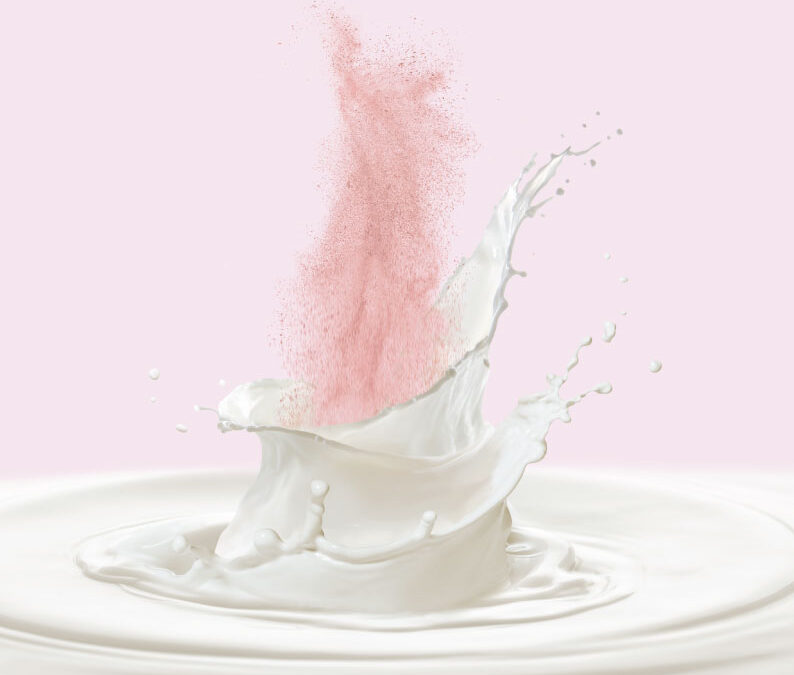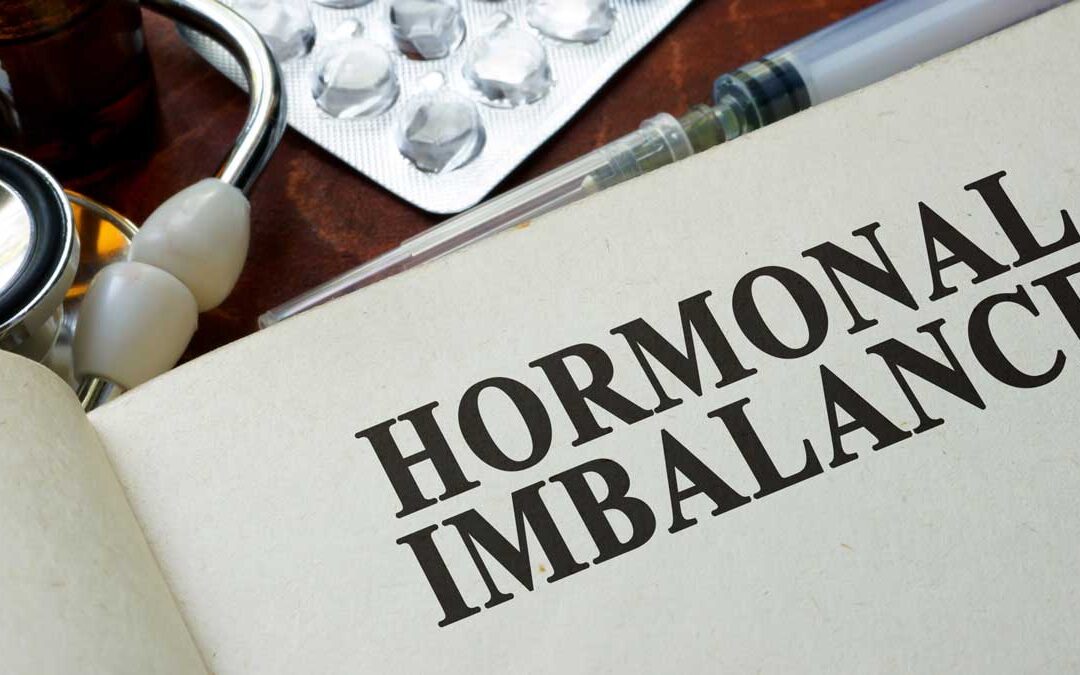
by Ingredia USA | Dec 21, 2020 | Stress Management & Sleep Disorders
In a recent survey, over 23 percent of participants reported having experienced burnout syndrome. The phenomenon of stress leading to burnout is not uncommon. Yet, most of us do little to alleviate the stress we feel every day.
Perhaps it is because we believe that it could never happen to us. Maybe we enjoy the idea of feeling in control too much to admit that we need to take a break.
Whatever your reasons are, it’s time to change.
Today we outline the major symptoms of stress and take a look at how chronic stress can lead to burnout syndrome. Let’s start with the basics!
What Is Stress?
Stress refers to the emotional tension we feel. The objects or situations that trigger this tension vary for all of us, but none of us are alien to stress.
Now, stress is not all bad. In fact, in small doses, and in certain situations stress is necessary for us to perform well, or even survive. However, when the stress we feel is consistent and prolonged, it begins to take a toll on our mental and physical health.
The Impact of Stress
Work or career-related problems happen to be one of the most common stressors for us all. In addition to this, there is also relationship-induced stress, financial stress, and school-related stress.
Here are a few of the immediate effects of stress that we experience.
Poor Time Management
Feeling the pressure of achievement can cause us to take on more than we are able to accomplish given the time that we have. We may take on additional tasks in the hopes of doing more, but what really happens is the quality of our work begins to decline over time.
Neglecting Your Needs
As you try to accommodate more tasks within the limited time that you have, you begin to neglect your physical and emotional needs. You compromise on your health, develop poor sleeping habits, and neglect your overall well-being in the hopes of making yourself more productive in school, work or even in your relationship.
Decline in Productivity
While feeling a little bit of stress might motivate us to meet deadlines or exercise caution, an excess of stress can hinder our progress. Additionally, the neglect of our physical and emotional needs, causes us to feel exhausted. We may feel so overwhelmed by the pressure of perfection or success that it may in turn inhibit our ability to be productive.
Loss of Focus
Stress can take a toll on your cognitive abilities by hampering your ability to concentrate and focus on a specific task. An excess of stress can often build up to anxiety causing you to be distracted by the worry of not doing your task the right way, rather than actually focusing on your task.
The Long-Term Consequence of Leaving Stress Unaddressed
It is common to be in denial of what we are experiencing. We may be unable to admit to ourselves that we are tired, or taking on more than we can chew. However, the refusal to address and manage our stress is the very thing that leads to burnout syndrome.
So, what really happens to us when we’re experiencing burnout?
Burnout Syndrome
A person experiencing burnout feels emotionally and physically exhausted. In this state, we lose our drive, motivation, and ability to deal with any kind of stress. Our body is numb to the stress, and we feel drained out of any energy.
This state is often accompanied by feelings of loneliness, isolation, depression, cynicism, and irritability.
If you or someone you know is experiencing burnout, it is best to seek out a therapist or psychiatrist to get the help you need. Know that there is no shame in asking for help.
What You Can Do to Prevent Burnout
If you feel like you or someone you know is on the path to a burnout, it is better to address this sooner than later. Here are a few things you can do to relieve yourself of some of the stress you are experiencing.
Finding Enjoyment in Other Things
Do you feel excessive stress about your job? Are you unable to focus on anything besides your schoolwork?
Sometimes we hyperfocus on a few things, and neglect the other enjoyable aspects of our life. The truth is, it’s all about balance. If your work is stressing you out, do try and dedicate some time to focus on other relationships, hobbies, and interests that you have.
Taking your focus off the stressor can be helpful in reducing the associated pressure.
Setting Realistic Goals
It’s time to try and go easy on yourself and the expectations you have. While it’s great to have big dreams, we must also make sure to set realistic and achievable targets for ourselves.
This does not mean that you have to forego the big dreams that you have, rather, it means that you must break your dream up into smaller milestones that you can accomplish over a realistic period of time.
Mindfulness
Finally, make sure you’re taking care of yourself. Take time out of your day to just take a few deep breaths and focus on the simple things.
Learning to be present with yourself, focusing on your breathing, and just appreciating the little joys of existing within a particular moment are great ways to ground yourself and forget about life’s pressures for a while.
Self Care Starts With You
It all begins with you! Simply being aware of the idea that burnout syndrome is a real possibility can be a real game-changer for the way you live your life.
Make a change today, and begin by taking small steps towards addressing your stress and leading a better life.
At Ingredia, we’re dedicated to helping promote the idea of a balanced and healthy lifestyle. Learn more about what we do and what we can do for you right here.

by Ingredia USA | Dec 3, 2020 | Other News
Properties of lactoferrin
Lactoferrin is a glycoprotein naturally present in breast milk that is known for its ability to regulate the immune system. Scientific studies also report bacteriostatic (prevents multiplication of pathogens), bactericidal and antiviral effects.
A variety of studies conducted between 2007 and 2016 have already demonstrated the benefits of lactoferrin in infant nutrition, highlighting the role that this glycoprotein may play in intestinal development and resistance to infections. Its immunomodulatory abilities can be partly explained by its positive effects on intestinal flora.[1] A 2007 study concluded that lactoferrin helps protect infants from minor respiratory infections during the first months of life.
This natural protein is present in human secretions such as tears and saliva, and in greater concentrations in breast milk. Its strong affinity for iron increases absorption. It can be used to limit infections as an antimicrobial agent, stimulate the immune system, improve intestinal health, or prevent iron deficiency.
Lactoferrin as a treatment for Covid-19
Used as an antimicrobial and anti-inflammatory agent, as well as for its immunoregulatory effects, lactoferrin has serious potential for research on Covid-19 prevention.
The direct and indirect antiviral effects of lactoferrin have been demonstrated in vitro [2]. It limits microbial growth due in part to its ability to bind to iron, but lactoferrin also interacts with microbial, viral, and cellular surfaces to inhibit microbial adhesion and viral penetration of host cells.
The antiviral effects of lactoferrin are generally attributed to its clearly demonstrated ability to regulate the immune system. But it has also been shown [3] that it can directly interfere with the life cycle of many viruses. Lactoferrin acts on the binding process of adenoviruses, for example, inhibiting replication. It also interferes with infection by binding to structures in the viral envelope. We also know that lactoferrin can interfere with other viral particles in vitro, such as the feline herpes virus.
Promising trials in Covid-19 prevention and treatment with lactoferrin
Due to its multiple functions, scientists consider lactoferrin to be an ideal candidate in the fight against the SARS-CoV-2 coronavirus, the cause of Covid-19.[4]
Two promising in vitro studies, one conducted in 2011 on SARS-CoV and the other conducted in 2020 on SARS-CoV-2, have shown that lactoferrin can inhibit viral infection in the early stages and is effective against SARS-CoV-2 in the post-infection phase.[5]
The 2020 study[6] was conducted by teams at university hospitals in Rome in order to evaluate the role of oral and intranasal administration of lactoferrin in 32 Covid-19 patients with mild to moderate symptoms, as well as an asymptomatic form of the disease. The goal was to document the efficiency of the protein in improving symptoms and eliminating the virus. The study also used a control group of 32 healthy volunteers. A dose of 1 gram of liposomal apo-lactoferrin in 10 capsules per day was administered orally for 30 days, in addition to the same form administered nasally 3 times per day. All patients demonstrated improvement in every symptom except fatigue, which continued in about a third of the group. Other very promising data has emerged from these studies, such as a drop in D-dimer concentration, which is crucial in prognosis for the disease, as well as regulation of Interleukin 6 (IL-6), one of the three pro-inflammatory cytokines.
Properties of lactoferrin used in manufacturing protective masks
The Virustatic Shield is an antiviral textile developed after 10 years of research in the United Kingdom. It is used to fight airborne propagation of RNA viruses such as influenza, SARS, and Covid-19. It is not really a PPE mask, but more of a face covering like a neck warmer. Highly breathable, it can block, capture, and deactivate respiratory viruses on contact. The Virustatic Shield snood uses a hydrophilic material tested for its ability to block and retain the virus coated with Viruferrin™ – a patented substance that contains natural proteins including lactoferrin – which adds another layer of protection by binding to the virus and capturing it on the surface of the material, preventing inhalation.
The natural protein lactoferrin has been used for its virus-fighting and preventive properties for several years. Its antiviral properties are particularly promising for research on Covid-19 prevention and treatment. When associated with other agents, lactoferrin can mitigate symptoms of the illness and prevent transmission.
Contact us
——————
[1] Cuibai Fan. Effect of lactoferrin, probiotics and SM3 (milk extract enriched in sphingolipides) on immune function in mice. Life Sciences [q-bio]. AgroParisTech, 2008. English. ffNNT: 2008AGPT0054ff. ffpastel-00005539f
[2] Berlutti F, Pantanella F, Natalizi T, Frioni A, Paesano R, Polimeni A, et al. Antiviral properties of lactoferrin–a natural immunity molecule. Molecules. 2011;16(8):6992-7018. Epub 2011/08/19. doi: 10.3390/molecules16086992. PubMed PMID: 21847071; PubMed Central PMCID: PMCPMC6264778.
[3] Redwan EM, Uversky VN, El-Fakharany EM, Al-Mehdar H. Potential lactoferrin activity against pathogenic viruses. C R Biol. 2014;337(10):581-95. Epub 2014/10/06. doi: 10.1016/j.crvi.2014.08.003. PubMed PMID: 25282173.
[4] Campione, E., Cosio, T., Rosa, L., Lanna, C., Di Girolamo, S., Gaziano, R., Valenti, P., and Bianchi, L. (2020). Lactoferrin as Protective Natural Barrier of Respiratory and Intestinal Mucosa against Coronavirus Infection and Inflammation. Int J Mol Sci 21.
[5] Mirabelli, C., Wotring, J.W., Zhang, C.J., McCarty, S.M., Fursmidt, R., Frum, T., Kadambi, N.S., Amin, A.T., O’Meara, T.R., Pretto, C.D., et al. (2020). Morphological Cell Profiling of SARS-CoV-2 Infection Identifies Drug Repurposing Candidates for COVID-19. BioRxiv.
[6] Ibid.

by Ingredia USA | Nov 30, 2020 | Other News
Did you know that over 80% of women will experience a hormonal imbalance at some point in their lives? If you are a man, you are also not getting away too easy as research shows that 1 in 4 men over the age of 30 has low levels of testosterone.
Hormones rule our entire lives. There are many types of hormones that control our behavior, characteristics, body temperature, and the ability to sleep. They are also responsible for sexual reproduction, digestion, weight loss, metabolism, and growth and development.
Unfortunately, because of the lack of knowledge about hormones, many people do not find out that they have a hormonal imbalance until it’s too late. You must know a bit about the major hormones so that you are more aware of the signs of imbalances.
Thankfully, that is exactly what we will be covering in this article. Keep on reading for a comprehensive guide to the major hormones that rule your body.
What Are Hormones?
Within your body, you have many different systems with different functions such as the cardiovascular system, nervous system, muscular system, and endocrine system.
While the nervous system creates signals by neurotransmitters and nerve impulses, the endocrine system creates signals via chemical messages, which are hormones. The endocrine system is comprised of multiple glands that secrete different hormones, all of which have their own specific function.
Some of the main bodily functions that are controlled by hormones are:
- Heart rate
- Digestion
- Sleeping and waking (melatonin)
- Energy levels
- Metabolism
- Sexual drive
- Reproduction
- Growth and development
- Hunger and satiation
- Body temperature
- Blood pressure
- Mood balancing and well-being
Now that you understand the functioning of the endocrine system, we will now cover the main types of hormones. While there are many different hormones, there are only a few dominating hormones that, if they become unbalanced, can create havoc within the endocrine system functions.
Serotonin
While many people associate serotonin as the “feel-good” hormone, it also controls much more. Serotonin affects specific functions including:
- Bone health
- Stimulates wound healing
- Controls anxiety
- Reduces depression
- Controls motor functions
- Helps with sleeping and waking
- Bowel functions
- Controls nausea
- Blood clotting
- Sexual Function
- Reduces symptoms of stress
- Creates feelings of happiness, calming, and helps with focus
Serotonin is produced in the digestive system and is formed from the amino acid Tryptophan. In other words, you can only get serotonin from your nutrition, so if you do not optimally nourish your body, you could be lacking in serotonin levels.
Serotonin Imbalance
If you are low in serotonin levels, you could experience symptoms including nausea, fatigue, depression, cognitive decline, hunger, and poor sleeping habits.
On the other hand, if you have abnormally high levels of serotonin, this could be a sign of a condition called serotonin syndrome. This could be life-threatening if left untreated and is typically caused by medications that cause an influx of serotonin.
Noradrenaline
Noradrenaline, also known as norepinephrine, is a stress hormone produced in the adrenal glands. Its main function is to provide safety responses like fight or flight. Noradrenaline, adrenaline, and dopamine are all part of the catecholamine family that controls your concentration and mood.
In conjunction with other types of hormones, such as cortisol, adrenocortical hormone, and corticotropin, noradrenaline’s main functions are:
- Increase heart rate
- Improves alertness
- Raises blood sugar levels to produce more energy
- Breaks down fat to produce more energy
- Increases blood pressure
- Memory storage
- Mood and emotional regulation
If noradrenaline levels are low, the symptoms include difficulty concentrating (ADHD symptoms), depression, and low energy. if noradrenaline levels are too high, it could lead to anxiety, panic attacks, or the sensations of euphoria.
Together, both serotonin and noradrenaline can combat mental health problems such as depression, anxiety, motivation, focus, and accomplishing new tasks.
Cortisol
Cortisol is a steroid hormone that helps your body adjust to and regulate stress levels. Cortisol is also known as the stress hormone because the levels of cortisol spike when your body is under physiological or psychological stress.
Cortisol helps the body convert carbohydrates, fats, and proteins into energy as a “fight or flight” defense response to danger. Unfortunately, if you are constantly under stress and not in actual danger, this response can lead to type 2 diabetes and insulin resistance.
If your body is producing too much cortisol, this could develop into Cushing’s disease, which has symptoms including:
- Facial swelling
- High blood pressure
- Depression
- Weight gain
- Brain fog
With constant stress, your body could eventually stop producing cortisol which leads to adrenal fatigue. This leads to depression, little to no energy, headaches, and weight gain.
If your body is not producing enough cortisol, it could lead to adrenal insufficiency (AI). The symptoms of AI include low blood sugar, painful joints, weight loss, and dizziness.
Melatonin
Melatonin is a hormone that your brain produces in response to darkness, as it plays a primary role in sleep regulation. Its main function is to control your circadian rhythm and help you to have an internal sleeping schedule.
Unfortunately, melatonin production declines as we age, which is why 40% of the older population suffers from insomnia. In addition to that, poor bedtime routines can also affect your body’s ability to produce melatonin. Poor habits such as using electronics with bright lights can affect your brain’s signaling to produce more melatonin, causing you to have a poor night’s sleep.
Melatonin affects more than your ability to sleep, as it can also help with digestion, reduces oxidative stress (antioxidant), improves eyesight, improves cognitive function, and improves cellular function.
A 2004 study discovered that melatonin can also be used to therapeutically treat and prevent certain types of cancers such as breast, colorectal, and prostate cancer. It is also widely used in nursing homes to reduce the sundowning effects in patients with Alzheimer’s disease.
There are some natural ways to boost your melatonin, the most important would be taking a melatonin supplement until you can create a normal sleeping pattern.
You can also consume more foods that contain melatonin including:
- Oranges
- Pineapple
- Barley
- Rice
- Oats
- Sweet potato
- Tomatoes
- Corn
By ensuring your melatonin levels are adequate, you are not only able to sleep better, but you will also improve your heart health, boost immunity, reduce acid reflux, and improve your digestive health.
Learn More About the Different Types of Hormones
It is essential that you understand the different types of hormones so that you can ensure you are living a healthy lifestyle and taking proper care of your body. If you neglect your hormonal health, you could develop conditions such as diabetes, thyroid disorders, Cushing syndrome, and other health problems.
It is important to consult with your physician if you feel you have a hormonal imbalance, or before starting any new health program.To learn more about hormonal health, feel free to contact us with any questions or inquiries.

by Ingredia USA | Nov 17, 2020 | Other News
If you have been having a hard time falling asleep or staying asleep, you are not alone. According to research, over 60 million Americans experience insomnia every single year.
To make matters worse, having insomnia increases your chances of dying in a car accident by 67%! It also affects your mood, increases anxiety, depression, your chances of having a stroke, and obesity.
Considering we spend about one-third of our lifetimes snoozing, we must learn how to optimize our sleep so that we can feel well-rested and take on our daily tasks.
This is where it becomes important to know the relationship between melatonin and sleep.
Keep reading this comprehensive guide on melatonin for sleep, so you can have the energy you need to live the life that you desire!
What is Melatonin?
Melatonin is a hormone that is naturally produced in your body, both in your gut and in your pineal gland. While researchers spent numerous years studying melatonin from the pineal gland, it was only recently when studies came out about the difference of melatonin in the gut.
According to these studies, gastrointestinal melatonin produces over 400 times more melatonin than found in the pineal gland. This also means that if you do not have a properly functioning digestive system, you may be suffering from low levels of melatonin.
Melatonin is also an immunomodulator, which means that it is needed for a healthy immune system function. Melatonin is also a powerful antioxidant, which supports proper eyesight, and reduces the risks of developing certain types of cancers such as breast, colorectal, and prostate cancers.
It also supports your neurological system, improves your digestive health, temperature, blood pressure, and improves your cognitive function. Your brain also signals for the release of melatonin when it receives signals from other hormones that it is time to eat.
Melatonin and Sleep
Once it becomes darker, your brain signals for the release of melatonin which will help you to sleep; this is also known as your circadian rhythm. Your circadian rhythm is your built-in alarm clock for your daily sleeping and waking schedules that is based on a 24 hour period. Instinctively, we are designed to sleep during the night and be awake for the other 16 hours of the day.
Once your brain releases melatonin, it begins to bind to brain receptors to slow down nerve activity and slow down the production of dopamine, which is responsible for staying awake.
Unfortunately, due to our current digital and fast-paced lifestyle, many people suffer from low melatonin levels because of their poor bedtime routines.
Exposure to light inhibits your brain from sending the signal to release melatonin, as it tricks the brain into thinking it is still daytime. If you have a bad habit of staying up late on your digital devices, you may be doing more harm to your health than you may think.
1. Corrects Jet Lag
No one likes the experience of jet lag. But if you love traveling, it comes with the territory. Jet lag can last up to six days, which means that if you have a shorter vacation, you may be too tired to fully enjoy it.
Thankfully, melatonin can help to correct your sleeping schedule so you do not have to suffer as long. By using the correct steps to help your body produce more melatonin, you can correct your sleeping schedule in as little as two to three days.
2. Adjusts Poor Sleeping Habits
An ideal bedtime routine for natural melatonin production includes unwinding with quiet time, with no electronics or lights for at least one hour before bed. Unfortunately, with our busy lifestyles, not many people can follow this ideal routine, which causes our body to lack sufficient melatonin for a good night’s sleep.
By ensuring you have a good bedtime routine, you are helping your body to wind down and prepare for a restful sleep, so that your lifestyle does not have to affect your health.
3. Increases Growth Hormone in Men
Human growth hormone (HGH) is an essential hormone for men’s health and well-being. Not only will it help with exercise performance, sex drive, and muscle building, but it also helps to reduce the chances of diseases, aids in recovery, and lowers body fat.
According to research, the more melatonin your body produces, the more it helps the body to stimulate and release more HGH. It can also help to reduce the release of other hormones that inhibit melatonin production.
4. Reduces Tinnitus
Sleeping with a bit of noise in the background is one thing, but if that noise is coming from inside your ears, there is no way to escape it. Tinnitus is illustrated by a constant ringing in the ears and can be even louder when the room is silent.
Unfortunately, tinnitus and insomnia are closely linked, as insomnia can worsen the stressful and emotional response to tinnitus, which prevents you from restful sleeping in the first place.
Thankfully, melatonin comes to the rescue again by lessening the symptoms of tinnitus and assists your body in having a better sleep.
5. Promotes Restful Sleep
It is great when you can easily fall asleep, but staying asleep is a major problem for most people. The more you wake up during the night, the more you are interrupting your sleeping cycle, which affects your ability to stay in deep REM (rapid eye movement) sleep.
During REM sleep your body is repairing, restoring, and rejuvenating. Melatonin can help you to fall asleep and stay asleep, which means that your body will be able to soak up the benefits of a few full sleeping cycles.
Learn More About Melatonin and Sleep
Understanding the relationship between melatonin and sleep is a major lifesaver if you find it hard to have a restful sleep.
To ensure your body is producing enough melatonin, focus on eating whole, clean foods, and make sure you are getting enough time outside for optimal well-being.To learn more about melatonin, feel free to contact us at any time.

by Ingredia USA | Nov 4, 2020 | Other News
Did you know that there are more than eighty types of sleep disorders that can impact your ability to get a full, well-rested night’s sleep?
Sleep is the most essential part of your daily routine. The average person will spend 1/3 of their life sleeping. However, if you’re struggling to get enough quality sleep, it can have a detrimental impact on your physical health and emotional health.
By understanding the different phases of sleep, you can begin to learn how your health is affected by not getting enough sleep in each phase. That’s why today, we’ve created this complete guide to help you get a better understanding of the different stages of sleep. Keep reading it to learn more!
Awake
Stage 0 is the time that you’re awake. You will spend time awake in bed before you fall asleep and right after you fall asleep. Stage 0 will also include the brief times that you awaken during the night. It is completely normal for people with healthy sleep patterns to awaken during the night briefly.
Light Sleep
Light sleep is initiated when you begin entering your sleep cycle. Also, light sleep is the transitioning phase that your body uses to move it into deeper sleep stages. This stage of sleep is referred to as paradoxical sleep.
During the light sleep phase, your muscles will relax. Also, your breathing will begin to slow down, and your heart rate will decrease.
It’s also very easy for you to wake up during this stage of sleep. Many people who experience muscle jerking, that results in them waking up, experience the muscle jerking during this phase of sleep.
Deep Sleep
The Deep Sleep stage of sleeping is the most refreshing and rejuvenating stage of sleep. This is because, during this stage of sleep, your body can focus on removing waste from your brain, repairing cells, and encouraging muscle growth.
During the stage of sleep, it won’t be easy to wake an individual. Also, if an individual is woken during the stage of sleep, they will appear groggy or disoriented.
Since your body is focused on repairing and restoring itself during this sleep stage, your body will also increase your muscles’ blood flow. Hormones, such as growth hormones, are released to help repair damaged areas of the body. Since your brain is focused on flushing out waste, slow brain waves will be released from your brain.
REM Sleep
Deep sleep and REM sleep are two different stages of sleep cycles. REM sleep is responsible for allowing your body to re-energize the brain.
During the REM cycle, people will have dreams. The brain is also responsible for focusing on learning, memory consolidation, as well as problem-solving. However, the older that a person gets, the less time that they will spend in the REM sleep cycle.
REM cycle will usually happen about 90 minutes after you fall asleep. The first period that your body spends in REM sleep will last 90 minutes. Typically, a person will go into four REM stages in one night, with the last REM in the cycle lasting up to 1 hour.
What Happens if You Don’t Get Enough Sleep?
Not getting enough sleep every night is incredibly dangerous. Some of the physical consequences of not getting enough sleep include a lowered immune system, a decreased sex drive, an increase in weight gain. Not getting enough sleep also leads to an increased risk of developing certain chronic illnesses, such as diabetes, cancer, and chronic fatigue.
Let’s take a closer look at what happens if you don’t get enough sleep every night:
Poor Heart Health
Several studies have found that if you get less than five hours of sleep per night, it greatly increases your risk of developing certain coronary health diseases. Your risk of having a stroke goes up significantly without the proper amount of sleep.
Impairment to Central Nervous System
As mentioned above, sleep is necessary to keep your body functioning properly. Chronic insomnia, or other causes of sleep deprivation, will disrupt your body’s ability to process and send vital information.
When you’re sleeping, your brain will develop pathways inside of itself to help it keep track of new information that it’s learning. Since your brain will be exhausted from the lack of sleep, your brain will prioritize the development of new pathways. As a result, this will make it more difficult for you to concentrate on tasks, decrease your coordination abilities, and make it difficult for you to remember new information.
Also, your emotional and mental state will be negatively impacted by sleep deprivation. You’ll likely be more susceptible to experiencing mood swings, as well as noticing difficulty making decisions. You could also experience anxiety, suicidal thoughts, and pulse in behaviors, depression, and paranoia when you deprive your body of sleep.
If you deprive your body of sleep for too long, you will begin to microsleep during the day. Microsleeps occur when you fall asleep for a few seconds and don’t realize it. Micro-sleeping is extremely dangerous, as it leaves you out of control of your body. This is especially dangerous while you’re driving or operating heavy machinery.
Endocrine System Depression
The endocrine system in your body is responsible for the production of hormones. For men, they begin to produce testosterone during the REM cycle of their sleep. Waking up in the middle of the night will severely impact your body’s ability to produce enough hormones.
In children and young adults, your body focuses on producing and releasing the growth hormone. The growth hormone, or HGH, is responsible for helping the body repair cells, tissues, and increasing the development of muscular tissue.
Understanding the Importance of the Different Phases of Sleep
By understanding all of the different phases of sleep, you’ll better know how your health is negatively impacted when you don’t get enough sleep every night. You’ll also understand the importance of each phase of sleep and how it benefits your body’s health.Are you looking to improve the quality of sleep that you’re getting? We’re here to help you! Click here to learn more today.





